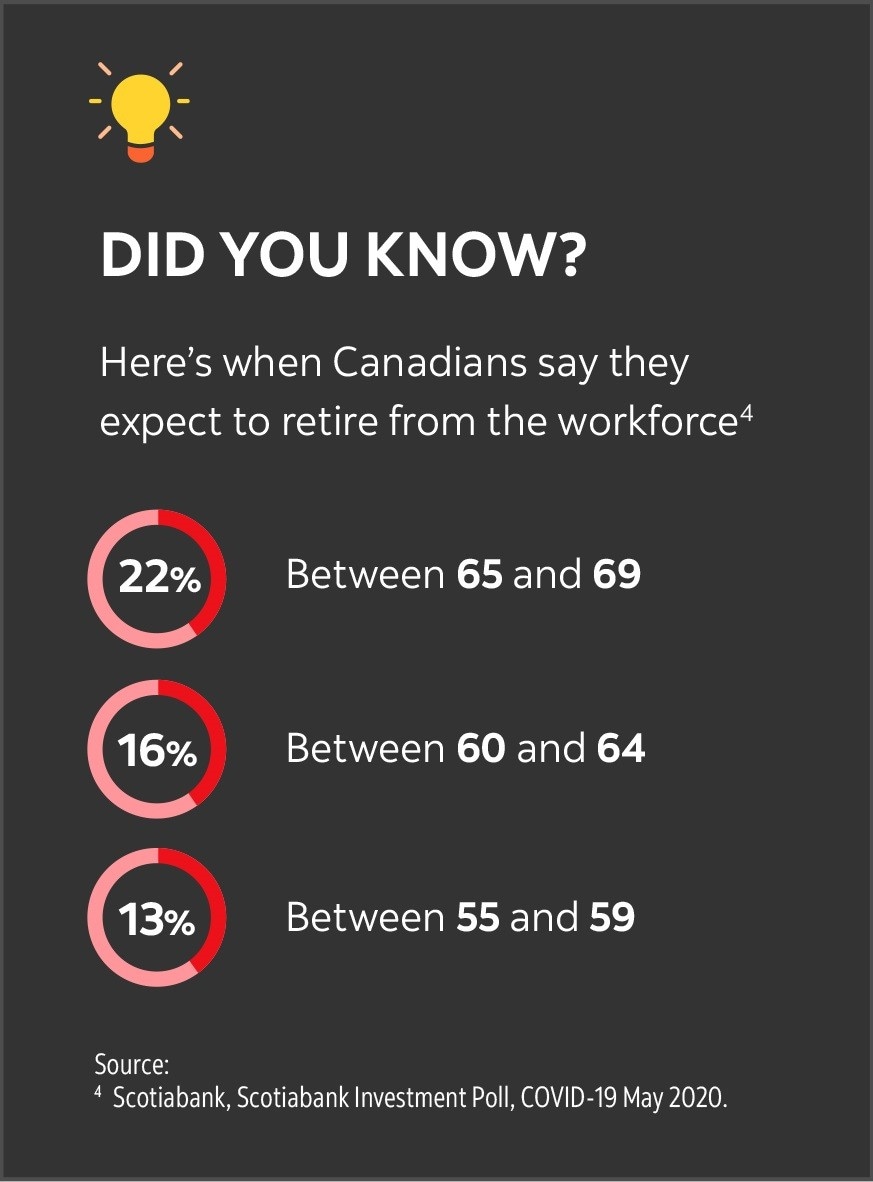Your home is more than just a place to live. Homes provide a sense of stability, security and comfort. It’s where you spend time with loved ones and where you create cherished memories.
As an increasing number of Canadians approach retirement, one of the most important questions they’ll need to answer is, “What should I do with my home?” For most individuals, the decision about whether to downsize or not is as much an emotional undertaking as it is a practical one — so it requires careful consideration and planning.
It may be helpful to begin by looking at the bigger picture regarding your retirement and how you’d like to spend your golden years. Consider the following:
- The life expectancy in Canada for men is approximately 80 years and 84 years for women.1
- The average Canadian spends about two decades in retirement (it’s about 23 years for women, and approximately 19 years for men).2
- As of January 2021, the average price of a home in Canada was $621,525, an increase of 22.8% from one year earlier.3
The information is telling us:
- Canadians are likely to live longer and could spend many years in retirement, so your financial plan must be able to provide you with an adequate income stream to last for an extended period.
- The value of your home has likely increased considerably over the years and may represent a welcome source of long-term cash flow if you invest wisely.

Your downsizing decision: What’s involved?
Before you consider listing your home for sale, here are five questions to ask yourself when contemplating if you should downsize.
1. How will downsizing affect your living expenses?
To determine the financial impact of downsizing, evaluate your expenses. Common expenses for homeowners include property taxes, maintenance, repairs, renovations, insurance, home security and utilities. Make a list of your common expenses – both monthly and annual – and their estimated cost. Next, create a similar list estimating what your new expenses could be – potentially eliminating some – if you downsize. For example, if you move to a new neighbourhood with all amenities in walking distance and a good public transportation system, you may decide you no longer need a car. If this is the case, you could see a decrease in expenses as you can eliminate car insurance, gas and regular maintenance costs.
Keep in mind that if you move to a smaller house, you may not always see a significant decrease in expenses. Moving to a condo might be a trade-off as well, since a potential reduction in property taxes and other costs may be offset by new condo fees.
2. Does your current home fit your retirement lifestyle?
Devote some time to thinking about your retirement lifestyle, as that will impact whether it makes sense to move or stay. For instance, if you expect to travel often or reside in a warmer location during the winter, you might not want to leave your house unoccupied for long stretches (or have to make arrangements for others to check on it). If your home has several floors, could that pose a problem if you develop mobility issues? Do you have a special connection with your community and neighbours that you want (and expect) to continue in retirement? Think about the potential benefits and drawbacks of staying in your current home.
Downsizing for retirement
Insert heading text
with an optional subtitle3. How much space do you really need?
If you’re an empty nester, is it practical to live in a larger house, or should you downsize your living space? Will you be able to continue with regular chores, keeping your home clean and in good repair during your retirement years? It’s important to think about how you will use your space in retirement. Do you expect to entertain often or have family and friends to visit, either short- or long-term. If you decide to downsize, you’ll need to declutter and streamline your belongings to accommodate the reduced living space.
4. Are you planning to help the next generation financially?
Perhaps you want to provide financial support to your children or grandchildren by helping them make a down payment for their own home or assisting with their education costs. Consider whether this would be possible without selling your current home.
5. How will downsizing impact your overall retirement goals?
While downsizing is primarily a lifestyle decision, it will also affect your finances and, ultimately, your retirement. Before making a decision, it’s a good idea to review your current financial plan with your advisor to clarify your housing goals and evaluate the financial impacts the various options could have on your income in retirement.
Deciding if you should downsize your home in retirement involves many financial factors, lifestyle choices and emotional considerations. Regardless of what you decide, make sure to incorporate downsizing as part of your overall financial plan so that you can look forward to a comfortable retirement, no matter where you decide to live.



